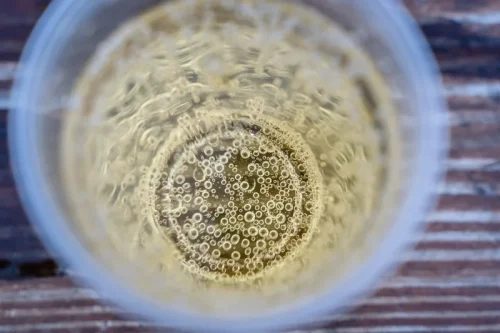
Clinical evidence tips to quit drinking suggests that the most common causes of relapse during this stage are neglecting self-care or not attending self-help groups. During the repair stage, taking care of yourself is paramount. She enjoys interviewing medical experts and researchers about their work and is passionate about communicating accurate and relevant health information to the public. Forbes Health adheres to strict editorial integrity standards. To the best of our knowledge, all content is accurate as of the date posted, though offers contained herein may no longer be available.
Tips for cutting down or quitting alcohol
Once you’ve quit, continue to take care of your body and mind throughout your daily life. From eating a healthy meal, to scheduling some alone time within your hectic schedule, give yourself what you need to cope day-to-day. Making sure you aren’t running on an empty tank makes it easier to avoid relapse.
Online Alcohol Treatment through Ria Health

The desire to quit usually happens when drawbacks such as hangovers, relationship problems, mood problems, and work issues begin to outweigh the rewards. Before starting the process, most people have at least one strong motivation to stop drinking. If an online program like Ria Health feels like a good fit for you, our team is here to connect you with the support you need. From anti-craving prescriptions to medical support and recovery coaching, our program aims to make the most impactful aspects of treatment more accessible for anyone wanting to quit or cut back. Schedule a call with a team member today to get started, or learn more about how it works. If you’re planning to start with DIY methods, it’s important to note that it isn’t safe for everyone to quit cold turkey.
Tips for success in alcohol recovery

Ria Health offers treatment for alcohol addiction via telemedicine. Our program includes medication for alcohol cravings, recovery coaching, online support groups, medical consultation, and https://ecosoberhouse.com/ digital tools to track your progress. The whole process is flexible, and can be conducted from the comfort of home. If you’re ready to change your relationship with alcohol, get in touch with us today, or learn more about how it works.
- If an online program like Ria Health feels like a good fit for you, our team is here to connect you with the support you need.
- Each week feels like a milestone, and this week might feel like your best one yet.
- Psychological symptoms can include irritability, anxiety and restlessness.
- However, people living with AUD may need to wean off alcohol slowly.
Throw away your alcohol.

You might reach for alcohol when you’re really just thirsty, says Crews. Drink a cup of soothing tea or a tall glass of water before you imbibe—once your thirst is quenched, you may not feel the need for as much—or any—alcohol. Use the NIAAA’s drink size calculator to determine the amount of alcohol in various drinks.
Have a Plan For Withdrawal

By New Year’s day 2024, I was ready to try an entirely dry spell – here are five things I noticed when I stopped drinking. You might realize that you look forward to weekend mornings now instead of dreading hangovers and hangxiety. Spending quality family time or pursuing our hobbies becomes much more fulfilling than alcohol use. Now you can check out the farmers’ market, go on a long walk, or make some progress on that DIY project. Probably not, but with almost 3 weeks of sobriety behind you, you may feel – and even look – rejuvenated.

What are the benefits of giving up alcohol?
If you’re considering quitting drinking, these benefits may be just what you need to help you decide. Of course, giving up alcohol is not always easy, and there may be some challenges along the way. But if you’re committed to sobriety, it’s possible to achieve your goal. This is usually when people start to feel their best after giving up alcohol. By this point, most physical withdrawal symptoms should have subsided and you should start to feel less anxious and more positive. During withdrawal, ensure you have the emotional and physical support you need to make it through.
- “Know your no.” Once you begin venturing into social situations involving alcohol again, be prepared with a response when someone offers you a drink.
- Know what you want your relationship with alcohol to look like going forward, make a long-term plan, and be prepared to stick with it.
- Letting your loved ones and friends know about your decision can empower them to make supportive choices, like refraining from drinking around you or offering you alcohol.
- The first day is always the hardest, but it’s also an important milestone.
- These are challenging to avoid and work through because they may appear randomly.
- Alcohol withdrawal is a serious medical concern, and you should make a plan with your physician to ensure that you can start cutting back safely.
People may also decide to speak with a doctor about effective strategies. In addition, local or virtual support groups can help by providing an environment to safely discuss tips and challenges. Once you’ve cut back on your drinking (so you’re at or below the recommended guidelines), examine your drinking habits regularly to see if you’re maintaining this level of drinking.
- One of the unexpected benefits of giving up alcohol is that you may find yourself more productive than before.
- Mindfulness helps you gain greater distance from your thoughts and urges, making it easier to avoid falling into old patterns, and improving your overall quality of life.
- Many people report less intense alcohol cravings during this timeframe.
Soon you’ll be on your way to more restful sleep, but in the meantime, developing a relaxing alcohol-free nighttime routine can help minimize discomfort. Counseling, support groups, and even anti-craving medication can make it much easier to stay the course when the road gets tough. Ria Health offers all three of these things, 100 percent online. Our coaches use techniques such as cognitive behavioral therapy and motivational interviewing to help members keep on track. Listen to sobriety podcasts, or read books about quitting alcohol. It can make a big difference to hear from others who have been down this road and have helpful advice and encouragement to offer.
Day 9
Potential solutions might include looking for low-cost treatment options, joining a support group, and talking to a mental health professional. If you’re looking at this page, then it means you’re interested in making a positive change in your life. Now’s a great time to turn that into a concrete plan and take immediate action, while you feel that motivation. Repairing a toxic relationship with alcohol can be a long process, but don’t let that discourage you. There are millions of people who have gone through this, and it gets so much easier with their support and advice. Stay kind to yourself and appreciate each improvement and effort you make along the way.


Leave a Reply